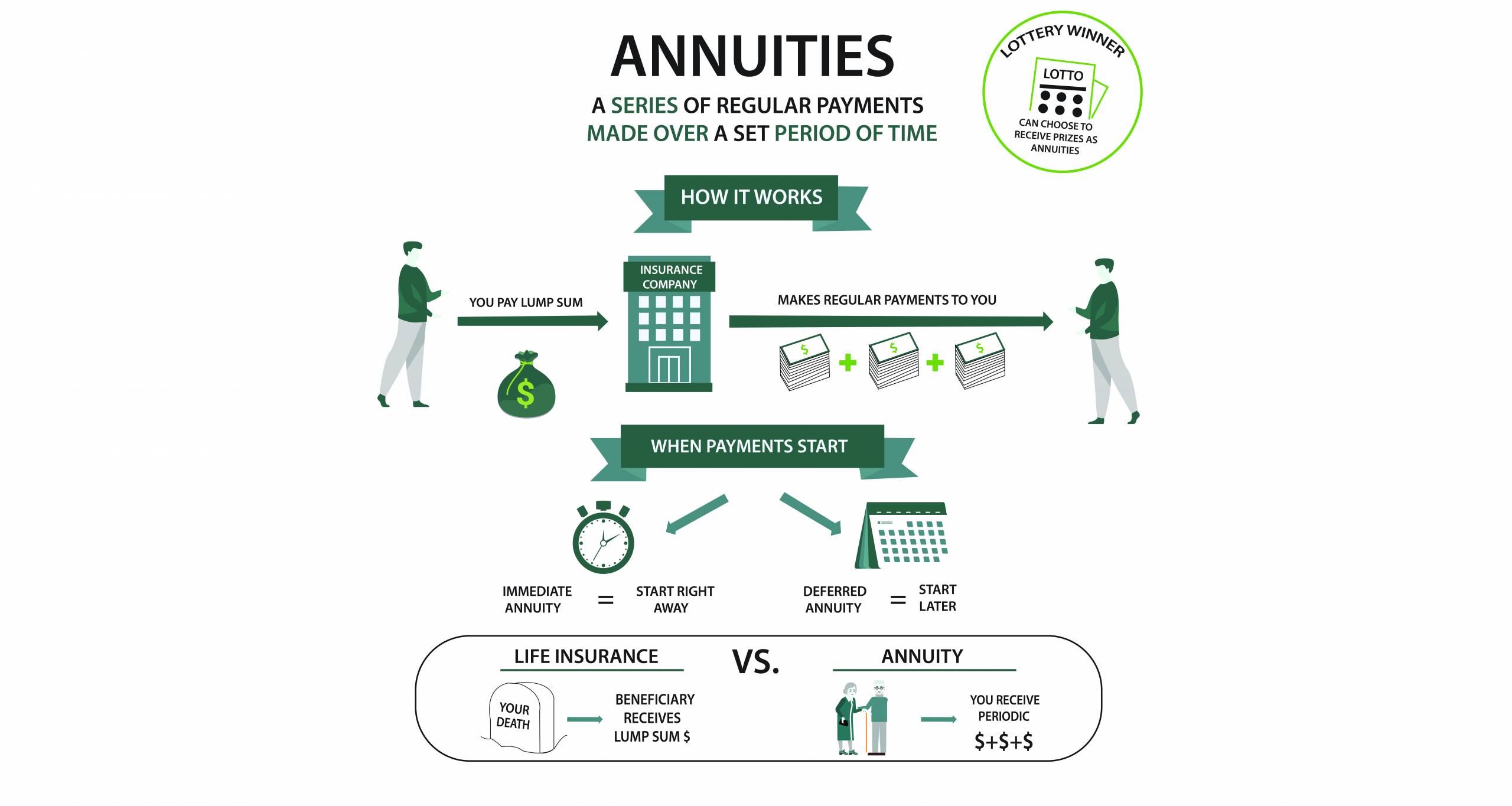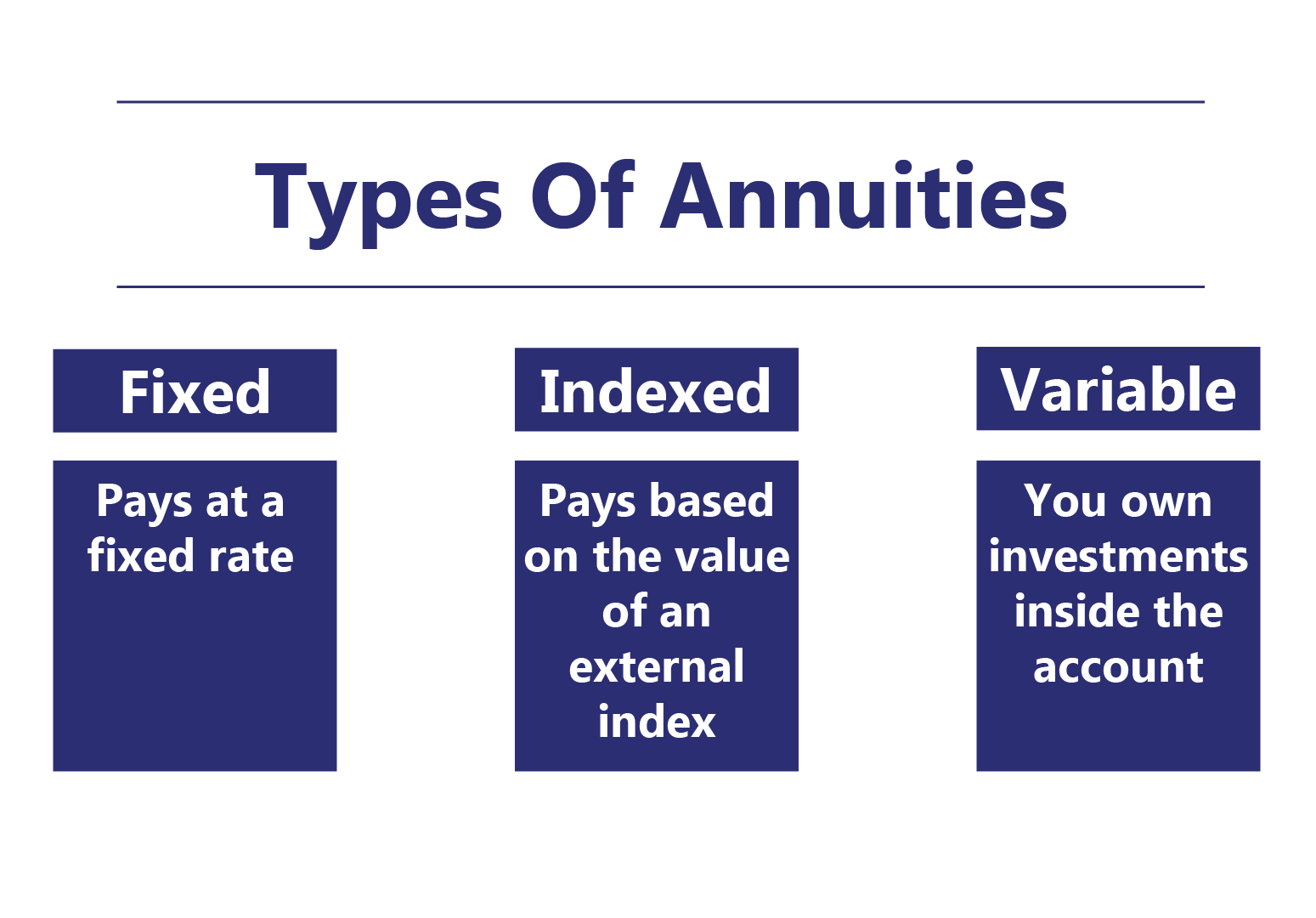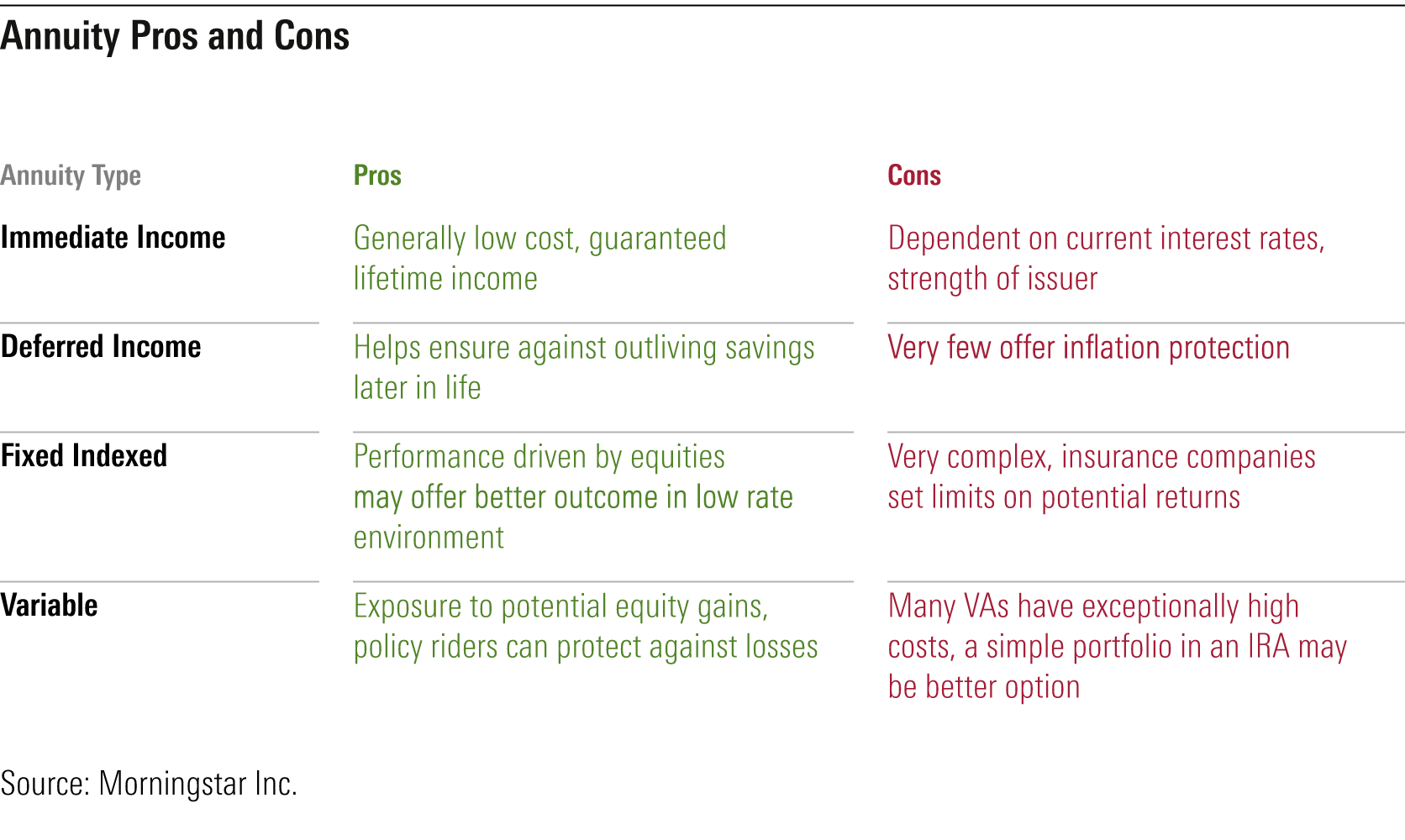Featured
Table of Contents
There are three kinds of annuities: dealt with, variable and indexed. With a fixed annuity, the insurance provider assures both the rate of return (the rate of interest) and the payout to the investor. The rate of interest rate on a repaired annuity can change gradually. Often the passion price is taken care of for a variety of years and after that changes occasionally based on existing rates.
With a deferred set annuity, the insurance policy company accepts pay you no much less than a defined interest rate as your account is expanding. With an immediate set annuityor when you "annuitize" your delayed annuityyou receive an established set quantity of cash, normally on a monthly basis (comparable to a pension plan).
While a variable annuity has the advantage of tax-deferred development, its yearly expenses are likely to be much more than the costs of a normal shared fund. And, unlike a repaired annuity, variable annuities do not supply any type of warranty that you'll make a return on your investment. Rather, there's a threat that you can really lose money.
Highlighting the Key Features of Long-Term Investments A Closer Look at Variable Annuity Vs Fixed Indexed Annuity Defining the Right Financial Strategy Pros and Cons of Retirement Income Fixed Vs Variable Annuity Why Choosing the Right Financial Strategy Can Impact Your Future Variable Annuity Vs Fixed Annuity: A Complete Overview Key Differences Between Variable Annuities Vs Fixed Annuities Understanding the Key Features of Long-Term Investments Who Should Consider Strategic Financial Planning? Tips for Choosing the Best Investment Strategy FAQs About Planning Your Financial Future Common Mistakes to Avoid When Planning Your Retirement Financial Planning Simplified: Understanding Your Options A Beginner’s Guide to Smart Investment Decisions A Closer Look at How to Build a Retirement Plan
Due to the complexity of variable annuities, they're a leading resource of financier complaints to FINRA. Prior to purchasing a variable annuity, meticulously reviewed the annuity's program, and ask the person offering the annuity to discuss all of the product's functions, bikers, costs and constraints. Indexed annuities usually offer a minimum surefire rate of interest rate integrated with a passion rate linked to a market index.
Understanding the functions of an indexed annuity can be complex. There are numerous indexing methods companies use to compute gains and, due to the range and complexity of the approaches used to credit rating rate of interest, it's challenging to contrast one indexed annuity to one more. Indexed annuities are normally classified as one of the complying with 2 types: EIAs provide an ensured minimum rates of interest (usually at the very least 87.5 percent of the costs paid at 1 to 3 percent rate of interest), as well as an additional rate of interest linked to the efficiency of several market index.

Conservative investors that value safety and security and security. Those nearing retirement that wish to sanctuary their properties from the volatility of the supply or bond market. With variable annuities, you can buy a range of safeties including stock and bond funds. Stock exchange performance figures out the annuity's value and the return you will receive from the cash you invest.
Comfortable with changes in the stock market and want your financial investments to equal inflation over an extended period of time. Youthful and want to prepare financially for retirement by reaping the gains in the supply or bond market over the long-term.
As you're developing your retirement savings, there are numerous ways to extend your money. can be specifically valuable savings devices since they guarantee a revenue amount for either a collection time period or for the rest of your life. Fixed and variable annuities are two options that use tax-deferred development on your contributionsthough they do it in different ways.
Analyzing Fixed Vs Variable Annuities Key Insights on Indexed Annuity Vs Fixed Annuity Defining the Right Financial Strategy Features of Smart Investment Choices Why What Is A Variable Annuity Vs A Fixed Annuity Matters for Retirement Planning How to Compare Different Investment Plans: Simplified Key Differences Between Different Financial Strategies Understanding the Rewards of Long-Term Investments Who Should Consider Strategic Financial Planning? Tips for Choosing the Best Investment Strategy FAQs About Planning Your Financial Future Common Mistakes to Avoid When Planning Your Retirement Financial Planning Simplified: Understanding Fixed Annuity Or Variable Annuity A Beginner’s Guide to Fixed Vs Variable Annuity Pros And Cons A Closer Look at How to Build a Retirement Plan
An offers a surefire interest price. Your agreement value will enhance due to the amassing of ensured rate of interest revenues, implying it will not shed worth if the market experiences losses.
An includes bought the securities market. Your variable annuity's investment performance will certainly affect the size of your nest egg. It may ensure you'll get a collection of payouts that begin when you retire and can last the rest of your life, offered you annuitize (start taking settlements). When you start taking annuity payments, they will depend on the annuity value back then.
Market losses likely will lead to smaller payments. Any type of passion or other gains in either kind of contract are protected from current-year tax; your tax obligation will come when withdrawals begin. Let's check out the core features of these annuities so you can determine just how one or both might fit with your overall retired life method.

A set annuity's value will certainly not decrease because of market lossesit's consistent and steady. On the other hand, variable annuity worths will vary with the efficiency of the subaccounts you elect as the markets fluctuate. Incomes on your dealt with annuity will extremely rely on its contracted rate when purchased.
Alternatively, payout on a taken care of annuity purchased when rates of interest are low are more probable to pay out incomes at a reduced rate. If the rates of interest is assured for the length of the contract, earnings will remain continuous despite the markets or rate activity. A fixed price does not suggest that fixed annuities are risk-free.
While you can't come down on a fixed rate with a variable annuity, you can pick to purchase conservative or hostile funds tailored to your danger level. More conservative investment alternatives, such as short-term bond funds, can help in reducing volatility in your account. Given that fixed annuities provide an established price, reliant upon current passion rates, they do not use that very same versatility.
Decoding Fixed Annuity Vs Variable Annuity Everything You Need to Know About Financial Strategies What Is the Best Retirement Option? Benefits of Annuities Fixed Vs Variable Why Choosing the Right Financial Strategy Can Impact Your Future How to Compare Different Investment Plans: How It Works Key Differences Between Different Financial Strategies Understanding the Rewards of Long-Term Investments Who Should Consider Strategic Financial Planning? Tips for Choosing Pros And Cons Of Fixed Annuity And Variable Annuity FAQs About Planning Your Financial Future Common Mistakes to Avoid When Choosing Variable Annuity Vs Fixed Indexed Annuity Financial Planning Simplified: Understanding Tax Benefits Of Fixed Vs Variable Annuities A Beginner’s Guide to Smart Investment Decisions A Closer Look at What Is A Variable Annuity Vs A Fixed Annuity

You potentially can gain much more lengthy term by taking additional danger with a variable annuity, yet you can likewise lose cash. While taken care of annuity agreements prevent market threat, their compromise is much less growth possibility.
Investing your variable annuity in equity funds will certainly supply more potential for gains. The charges connected with variable annuities might be greater than for various other annuities.
The insurer may impose abandonment charges, and the internal revenue service might impose a very early withdrawal tax fine. Surrender costs are outlined in the contract and can vary. They begin at a certain portion and afterwards decline with time. As an example, the surrender fine may be 10% in the first year however 9% the next.
Annuity profits undergo a 10% early withdrawal tax fine if taken before you reach age 59 unless an exemption uses. This is imposed by the IRS and relates to all annuities. Both taken care of and variable annuities provide choices for annuitizing your equilibrium and transforming it into an assured stream of life time income.
Analyzing Strategic Retirement Planning Everything You Need to Know About Financial Strategies Defining Immediate Fixed Annuity Vs Variable Annuity Benefits of What Is Variable Annuity Vs Fixed Annuity Why Choosing the Right Financial Strategy Is a Smart Choice How to Compare Different Investment Plans: Explained in Detail Key Differences Between Different Financial Strategies Understanding the Risks of Fixed Vs Variable Annuity Pros And Cons Who Should Consider Strategic Financial Planning? Tips for Choosing Pros And Cons Of Fixed Annuity And Variable Annuity FAQs About Variable Vs Fixed Annuity Common Mistakes to Avoid When Choosing Fixed Annuity Vs Equity-linked Variable Annuity Financial Planning Simplified: Understanding Your Options A Beginner’s Guide to Variable Annuity Vs Fixed Indexed Annuity A Closer Look at How to Build a Retirement Plan
You may choose to use both taken care of and variable annuities. If you're selecting one over the various other, the distinctions issue: A may be a better choice than a variable annuity if you have a much more conservative risk tolerance and you look for foreseeable rate of interest and primary security. A may be a better alternative if you have a higher danger resistance and desire the capacity for lasting market-based growth.
There are various types of annuities that are designed to offer various purposes. A fixed annuity guarantees payment of a set quantity for the term of the agreement.
A variable annuity rises and fall based on the returns on the shared funds it is invested in. An instant annuity begins paying out as quickly as the buyer makes a lump-sum payment to the insurance company.
Annuities' returns can be either dealt with or variable. With a fixed annuity, the insurance business guarantees the customer a particular settlement at some future date.
Table of Contents
Latest Posts
Understanding Annuities Variable Vs Fixed Key Insights on Variable Annuities Vs Fixed Annuities Defining the Right Financial Strategy Benefits of Fixed Indexed Annuity Vs Market-variable Annuity Why F
Decoding How Investment Plans Work A Comprehensive Guide to Fixed Income Annuity Vs Variable Growth Annuity Breaking Down the Basics of Investment Plans Features of Smart Investment Choices Why Choosi
Analyzing Strategic Retirement Planning A Closer Look at Variable Annuities Vs Fixed Annuities What Is the Best Retirement Option? Advantages and Disadvantages of Different Retirement Plans Why Choosi
More
Latest Posts